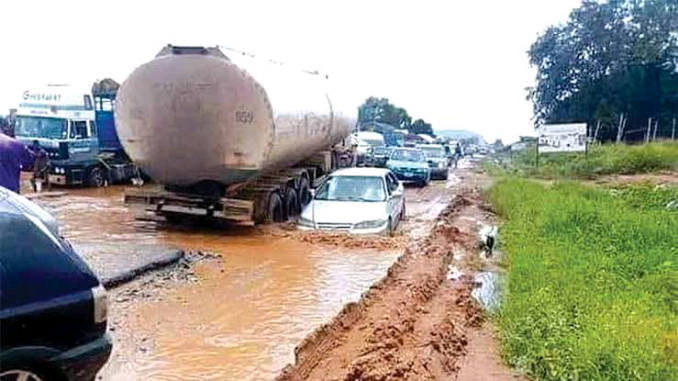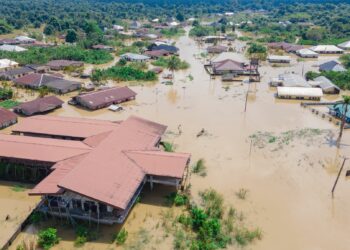Nigeria faces a daunting challenge in closing its staggering $3 trillion infrastructure gap over the next 30 years, as highlighted by the Reviewed National Integrated Infrastructure Master Plan and Agusto & Co, a pan-African credit ratings agency. The urgency of this issue is underscored by the need for an annual investment of $150 billion, a monumental task given the country’s declining government revenue and increasing reliance on borrowing.
Nigeria currently generates circa $22 billion in revenues annually.
The infrastructure deficits in Nigeria are not a new revelation. For years, reports have depicted a bleak picture: inadequate roads, railways, power generation, water supply, healthcare, housing, and education facilities. This chronic shortfall has severely impeded the nation’s progress, hindering inclusive growth and global competitiveness. In 2019, Nigeria ranked a dismal 116th out of 141 countries in the World Economic Forum’s Global Competitiveness Index, largely attributed to its poor infrastructure.
Successive Nigerian governments have initiated various infrastructure projects in the hope of driving economic growth. Yet, the task remains far from complete. For instance, despite boasting a vast network of 200,000 km of roads, only 60,000 km are paved. Corruption, vandalism, bureaucratic hurdles, delays, and inadequate maintenance have all played a role in perpetuating this crisis.
However, the most significant roadblock is the country’s fiscal constraints. Historically, Nigeria has relied heavily on budgetary allocations funded by tax revenue and borrowing to finance infrastructure projects.
As the infrastructure deficit looms large, experts are increasingly critical of the government’s approach, which involves borrowing extensively from multilateral development banks, such as the World Bank, and bilateral development banks, like the Exim Bank of China. Over two decades, Nigeria borrowed $7.3 billion from China to fund various infrastructure projects. Critics argue that this reliance on debt is unsustainable, especially as the country’s debt swelled from N7.56 trillion in 2012 to N46.25 trillion by the end of 2022, and now N87 trillion, with projections of further increases in the near future.
Amid these concerns, voices advocating for a paradigm shift grow louder. Augusto & Co suggests that private sector involvement could be the key to addressing Nigeria’s infrastructure gap. Public-Private Partnerships (PPP) models like Build-Operate-Transfer (BOT), Build-Own-Operate (BOO), and Build-Own-Operate-Transfer (BOOT) are proposed as viable alternatives to solely relying on government funds.
The World Bank, speaking at the 2023 banking and finance conference in Abuja, emphasised Nigeria’s abysmally low public spending on infrastructure at both federal and sub-national levels. The bank warned that at the current rate, it would take Nigeria 300 years to close the infrastructure gap, further highlighting the urgent need for action.
With President Bola Tinubu, the infrastructure crisis takes center stage. Experts argue that a radical shift in governance is required. Measures such as reducing the size of the cabinet, cutting costs in government agencies, privatizing state-owned enterprises, and focusing on capital expenditure in budgets are all seen as necessary steps to address this monumental challenge. Furthermore, a restructuring of Nigeria’s debt portfolio and a commitment to implementing the Reviewed National Integrated Infrastructure Master Plan are also proposed solutions.
A lecturer at Ebonyi State University, Dr. Nelson Nkwo, assessing the country’s state of infrastructure deficit, said reducing Nigeria’s infrastructure deficit is a complex and long-term challenge that requires a comprehensive and multi-pronged approach.
He said the government must encourage private sector participation through Public-Private Partnerships (PPPs) in various infrastructure projects. “This can attract much-needed investment, expertise, and efficiency in infrastructure development,” he said.
He also cited that the government must develop a clear and comprehensive long-term infrastructure plan that prioritizes critical sectors such as transportation (roads, railways, airports), energy (power generation and distribution), water supply, healthcare, education, and housing. He noted that this plan should be regularly updated and aligned with the country’s development goals.
On his part, an economic affairs analyst in Lagos, Andrew Okpako, said the government should implement fiscal reforms to increase government revenue and create a more sustainable funding mechanism for infrastructure projects. He said this may include expanding the tax base, improving tax collection, and reducing leakages.
Okpako also called on the government to prudently manage the country’s debt to avoid overburdening future generations and to prioritize borrowing for strategic, high-impact projects and ensure that the terms of borrowing are favorable to Nigeria.
Another lecturer who teaches at the Department of Banking and Finance, Nnamdi Azikiwe University, Awka, called on the government to allocate a significant portion of the national budget to capital expenditure, with a focus on infrastructure development, noting that this may require reducing recurrent expenditures and improving budget execution efficiency.
He also said the government should enhance project management capabilities to ensure that infrastructure projects are completed on time and within budget. He said this includes addressing issues such as corruption, bureaucratic bottlenecks, and project delays.
He said it is also important to allocate resources for the maintenance and rehabilitation of existing infrastructure assets to prevent further deterioration, adding that neglecting maintenance can lead to more significant costs in the long run.
He however cautioned that there is the need to ensure strong political will and commitment to infrastructure development at all levels of government, stressing that consistency in policy and commitment to long-term projects is crucial for success.
NATIONAL ECONOMY notes that Nigeria’s infrastructure gap poses a severe threat to its economic growth and stability. While the government has initiated projects in the past, it is evident that a new approach is needed, especially given the fiscal constraints and rising debt. Private sector involvement, strategic fiscal measures, and a clear commitment to infrastructure development are critical steps for Nigeria to embark on the long journey towards closing its $3 trillion infrastructure gap and charting a more prosperous future.
















